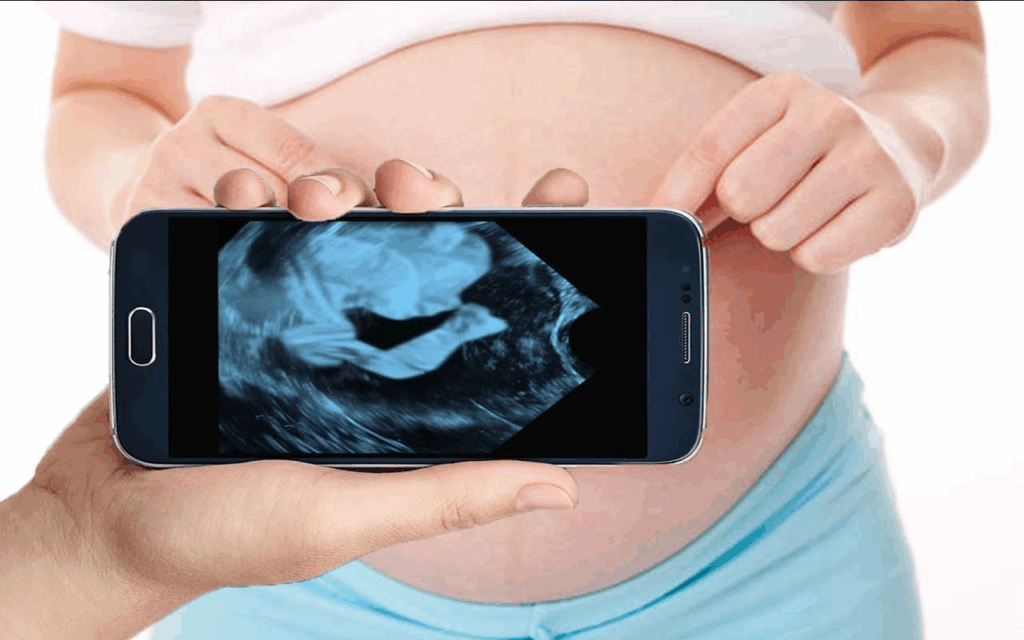Anúncios
Smartphone Ultrasound Apps: Bringing Diagnostic Power to Your Palm 📱🩺
In the ever-evolving world of healthcare technology, one innovation stands out as truly transformative: smartphone ultrasound apps.
By combining advanced imaging with the portability of mobile devices, these tools make real-time scanning possible from virtually anywhere.
Anúncios
Whether you’re a healthcare professional, an expectant parent, or simply health-conscious, mobile ultrasound solutions offer new levels of accessibility and convenience.
These apps support everything from fetal development tracking to muscle and organ scans, all enhanced by AI-powered image processing and cloud-based data storage.
Anúncios
Let’s dive into how these revolutionary apps are changing point-of-care diagnostics, and compare the top players in the field.
📲 Top Handheld Ultrasound Apps for iOS and Android
Choosing the right ultrasound app depends on your goals — clinical use, home monitoring, or educational purposes.
Here are the most popular and reliable options on both platforms:
🩻 Butterfly iQ
Butterfly iQ is one of the pioneers in handheld ultrasound technology, offering a single probe solution that supports whole-body imaging.
The app is available for iOS and Android, and it connects via cable to the probe.
Its main strength is its broad compatibility, including with iPhones and iPads, and its high-quality image output.
🌐 Clarius
Clarius is a wireless ultrasound system with an easy-to-use mobile app.
Its AI-powered assistance and no-cord design make it a favorite among physicians in remote or fast-paced environments.
The app includes presets for cardiac, lung, obstetric, and soft-tissue scans, and supports DICOM for easy integration with hospital systems.
👶 BabyWatcher (for expecting parents)
This app focuses on expectant parents who want to monitor their baby between prenatal visits.
Paired with an approved home-use probe, it lets you view your baby’s movements and heartbeat on your smartphone — safely and conveniently.
Although not meant for diagnosis, it helps create emotional connections and peace of mind.
⚙️ Key Features: AI Assistance, Cloud Integration & Telemedicine
Modern ultrasound apps go beyond basic imaging. They incorporate intelligent tools to support both diagnosis and collaboration.
🧠 AI-enhanced Imaging
Apps like Clarius and Butterfly iQ use machine learning to automatically optimize settings such as depth, contrast, and frequency.
This results in clearer images with less manual adjustment — especially useful for non-radiologists.
Some even highlight anatomical landmarks, reducing interpretation errors.
☁️ Cloud-based Storage and Sharing
Most top-tier apps include secure cloud storage, enabling:
Backup of scans and patient records
Access across devices
Real-time sharing with specialists or EMR systems
This is critical in fast-paced clinical environments or for remote teleconsultations.
📡 Telemedicine Capabilities
Some apps allow live streaming of scans, enabling remote experts to guide the procedure in real time.
This is particularly useful in rural areas or emergency settings where immediate input is needed.
🔌 Hardware Requirements and Probe Compatibility
While the apps are powerful, their performance depends heavily on the probe used.
🎛️ Types of Probes
Single-probe solutions – Like the Butterfly iQ, which adjusts settings automatically for various scan types
Multiple probe kits – Like traditional ultrasound systems, offering specific heads for vascular, abdominal, and obstetric use
Wireless vs. Wired – Wireless options are more convenient, while wired probes offer higher data fidelity in some cases
🔄 Device Compatibility
Ensure that your chosen app and probe work with your device:
iOS vs Android: Some apps are optimized for one platform
Connector types: USB-C, Lightning, or proprietary adapters
Minimum OS versions: Typically iOS 13+ or Android 10+
Failing to match the right probe and app to your phone or tablet can limit functionality or image quality.
💰 Pricing Plans and Value Comparison
Let’s look at what you get for your money — because the cost of mobile ultrasound varies widely.
Butterfly iQ
Hardware: Starts around $2,000 USD
Subscription: $420/year for access to cloud, AI tools, and advanced modes
Use Case: Professionals seeking a compact, all-in-one system
Clarius
Hardware: Around $4,000 depending on probe type
Subscription: $595/year for premium access and cloud features
Use Case: Clinics, hospitals, and professionals in the field
BabyWatcher (consumer)
Hardware: Home-use kit for rent or purchase (~$100–$150)
App: Often free with purchase
Use Case: Home monitoring during pregnancy
Factors to Compare
Image resolution
Battery life
Ease of setup and use
Data security and HIPAA compliance
Ultimately, the right choice balances cost, accuracy, and portability for your specific needs.
📐 Best Practices for Reliable Scanning Technique
No matter how advanced the technology is, poor technique leads to poor results.
Here are key tips to get the most from your smartphone ultrasound app:
✅ Use Gel or Liquid Medium
Ultrasound needs contact with the skin without air interference.
Always use ultrasound gel or a safe water-based medium to ensure signal clarity.
📏 Choose the Right Preset
Most apps come with preset scan modes like “cardiac” or “OB/GYN.” Choosing the right one helps optimize image parameters automatically.
🔍 Practice Probe Positioning
Getting good images often takes practice. Start with landmarks (like the spine or bladder) and move slowly.
Use short, consistent movements and maintain steady pressure on the skin.
🎓 Watch Tutorials and Get Feedback
Many apps include training videos, scan libraries, and peer feedback options. These are great for building confidence.
If you’re using the app for clinical purposes, always review findings with a qualified professional.

✅ Conclusion
As technology continues to evolve rapidly, having an ultrasound in the palm of your hand transforms how we approach health and wellness.
Moreover, these smartphone apps not only provide convenience but also deliver surprisingly accurate insights.
For example, they enable real-time imaging, remote consultations, and instant data sharing with healthcare professionals.
Consequently, whether you are a medical professional on the move or a parent monitoring your child’s growth, these tools are invaluable.
Don’t wait any longer. 😊
Furthermore, most leading apps feature intuitive interfaces, robust security measures, and cloud-based storage.
Therefore, you can trust that your sensitive data remains protected while maintaining seamless access across devices.
In addition, continuous updates and community-driven feedback ensure ongoing improvements and reliability.
Meanwhile, tutorials and customer support empower users of all experience levels to get started quickly and confidently.
Ultimately, exploring the best ultrasound apps expands diagnostic possibilities beyond the clinic.
However, it remains crucial to pair these tools with professional guidance to ensure accurate interpretations and safety.
By integrating cutting-edge mobile ultrasound technology into daily routines, we embrace a future where healthcare is more accessible, personalized, and efficient.
Start your journey today and discover how mobile scanning can reshape your health experience! 🩺🌐



